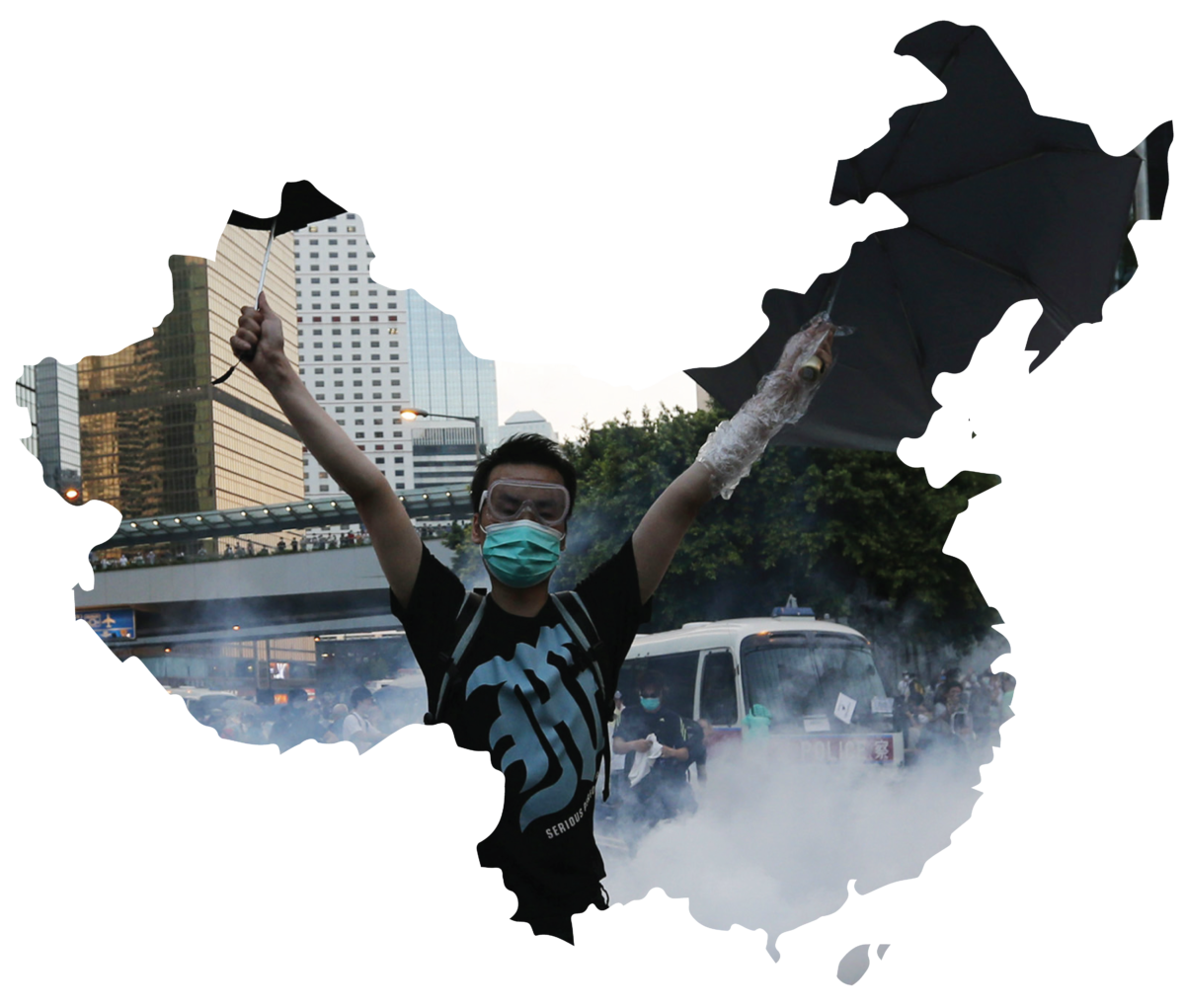
If Terrance Chu was still in Hong Kong now, he would be protesting, too.
The first year St. Thomas student said Hong Kong demonstrators are protesting because of their intense pride in liberty and democracy, but they are also a little angry toward the Chinese government.
“The Beijing government is simply not keeping its word…so yes, they are going to be a little angry.”
The protests that have drawn hundreds of thousands of demonstrators started last week with a group of students after the Beijing government said they would not get to nominate candidates for chief executive.
Less than twenty years ago, the British gave control of Hong Kong to China. Part of the 50-year deal to join China was that Hong Kong would get certain freedoms, including freedom of speech, assembly and religion, from China with “one country, two systems.”
“This whole sense of liberty and democracy is sort of deep rooted in them in some way considering the fact that Hong Kong was once a colony of the British.” Chu said.
“It would not come as a surprise to me that Beijing is already moving towards its goal preemptively to gain more control.”
Chu’s mother now lives in Vancouver, but visits family in Hong Kong frequently. She saw the protests this past week and told Chu it was a mess.
His mother saw roads blocked by thousands of people and the traffic at a stand still. People were sitting, laying and standing on the street, and some people were even occupying buildings.
Although the protests are non-violent, people have started to get rowdy and Hong Kong police were spraying tear gas at the protesters on the first day. Although Hong Kong has freedom of assembly, the rest of China, or Mainland China, does not.
Chu is worried that it will get to the point of violence, because of the nature of current Chinese President Xi Jinping.
“He is known for suppressing protests, of having this iron fist of control over matters,” he said.
Suweun Xu, like some others in China, does not think people in Hong Kong should be protesting at all.
Xu, a first-year St. Thomas student, is from southwest China in Sichuan.
She said there is no doubt the Chinese government will try to stop the protesters with force.
“They have to stop them,” she said. “Because if they continue doing this then many more students will strike and many workers strike and then it’s hard to stop.”
Xu said protesting is not going to get the people of Hong Kong what they want. She said they should use a different tactic.
Chu said even if there is another way, Hong Kong protesters will never really get what they want because Hong Kong is influenced by decision-making in China.
“Yes, it’s Hong Kong and yes, it has its own laws and way of governance, but in reality, it is still suffering from a lot of influences from Mainland China.”
Chu said eventually the 50-year deal is going to end and the rights will be lost as well. It is inevitable, he said, for them to start gaining more control over Hong Kong.
Chu said in Mainland China, Facebook, Twitter and YouTube as well as CNN and BBC are blocked regularly.
“The Chinese government fear the lack of stability and they fear their people, their minds getting adapted to protest, democracy and to freedom. They don’t want the people to do that. So they’ve always censored it.”
As always, Mainland China is left in the dark, said Chu, and the government is censoring out any news or information of Hong Kong’s protests.
“China wants stability. China knows that what they’re doing is often frowned upon by the United States and by the international community.”
It seems, said Chu, that China seizing more control over Hong Kong is inevitable.
“One of (the protestors’) intents is to maintain democracy and maintain peace and maintain freedom from the influences of Beijing, but that’s not going to happen.”
